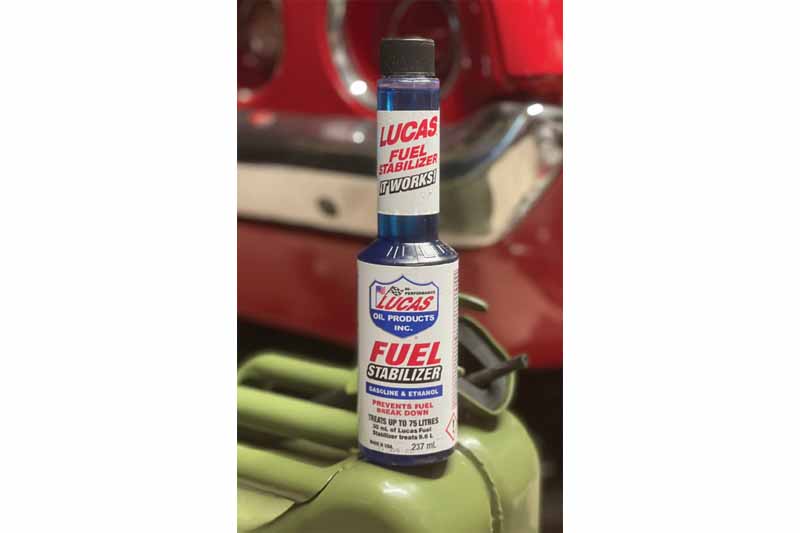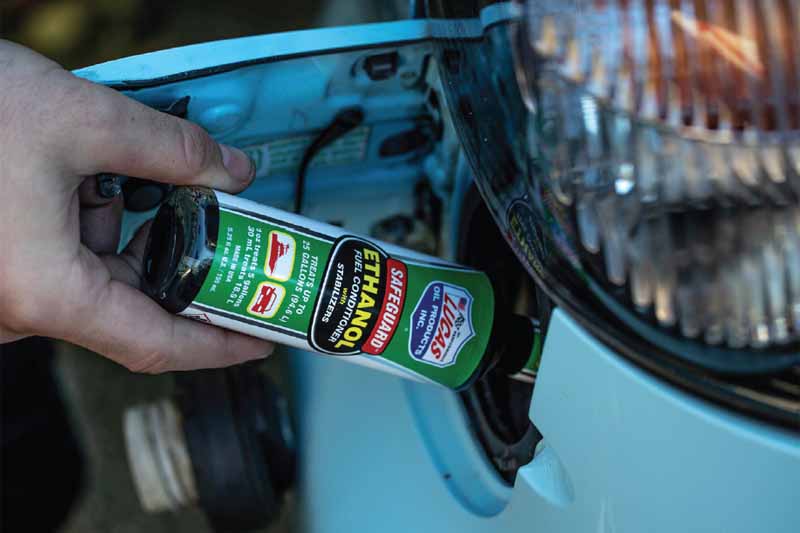Lucas Oil gives winter car storage top tips

Lucas Oil Sales and Operations Director, Dan Morgan, talks about oils, additives and winter care when cars are off the road and in storage.
Darker evenings and cooler temperatures mean that many soft tops and other cherished cars are off the road and in winter storage. They also mean that you will be asked for more specific advice about how to maximise engine care and vehicle protection over the winter.
So, what kinds of advice should you be offering? Dan Morgan, sales and operations director for Lucas Oil, is well-placed to provide some answers:
“With regular use, oils become contaminated with a range of things, such as tars and resins, metals from engine wear and moisture,” he said. “Running the car burns off many of these contaminants, but the heat also causes the oil itself to break down. This leaves the engine with less protection. Storing a car with contaminants in the system provides a catalyst to corrosion.
“Under ideal circumstances, it makes sense to service the car now and change the oil.
Just changing the oil is “unlikely to be enough”
Dan continued: “Ensure the oil specification is up to the job. It could be that the car has recently entered the ‘high mileage’ category. It will benefit from various conditioners that a more appropriate high mileage oil specification can provide. More importantly, it’s wise to ensure the oil can deliver protection against dry starts.”
Dry starts are caused by a result of metal-to-metal contact and occur after the drain down of engine oil into the sump. This only occurs after a period of inactivity such as winter storage, according to Lucas Oil. There’s no protection left for the components. It’s during engine turnover, at the restart, that damage from a dry start takes place:
“There is an easy fix,” reassured Dan. “Lucas Oil Heavy Duty Oil Stabilizer is an additive product that fortifies the existing oil. It coats internal engine parts, adds tackiness and leaves behind an oil film over every part of each component that remains in place throughout the standing period. This prevents dry-starting in the springtime.”
Lucas Oil Heavy Duty Oil Stabilizer has a proven track record, claimed Lucas Oil. It reported that users say it provides greater engine protection and extends the operational life of components. Because it remains active long after the oil has drained away, it not only provides protection but also a higher level of lubricity.
Oil consumption is reduced, and lost engine power is restored by the lower engine operating temperatures once the car is back on the road. Oil specifications are far more engine specific these days, of course. Consequently, Lucas Oil has developed two additional types of oil stabiliser: both have the aim of fortifying existing oils to deliver better levels of engine protection according to circumstances that are more appropriate to modern engines.

Heavy Duty Oil Stabilizer is for older cars with high mileages and consequential engine wear. It was developed for use not just in engine oils, but with gearbox oils and differential oils, too. It’s ideally used with mineral oils and oils, such as 10W40 and 20W50, but also as a solution for 5W30 oil specifications if engine wear/high mileage is evident.
Pure Synthetic Oil Stabilizer is an oil additive developed for high performance engines, running on synthetic oils. It is designed for use as a preventative engine maintenance product in 5W30 and 5W40 specifications.
More recently, Low Viscosity Stabilizer has been added to the oil stabiliser family. It’s an oil additive for vehicles equipped with 0W oil specifications. This includes 0W16, 0W20, 0W30 and 0W40 alternatives. It’s hybrid safe and compatible with engine technologies, such as variable valve timing solenoids and cylinder deactivation systems.
To fill the tank before a car goes into storage?
Lucas Oil stated that some workshops still advise customers to fill the tank before the car goes into storage. Apparently, they do so for two reasons: a full tank of diesel or petrol was considered the best way to minimise moisture-levels inside the tank. It was also said to reduce strain on the valves.

However, Lucas Oil has urged counter staff to advise customers that although modern fuels are much more robust than older fuels, they still suffer from octane degradation over time. They also contain much higher levels of ethanol. Significantly, ethanol has hygroscopic properties. It actively increases the level of moisture inside the fuel tank. Consequently, internal corrosion is a greater risk. Moreover, it encourages phase separation of the fuel inside the tank. This creates a watery-fuel mix that won’t support combustion but does increase the corrosive potential inside the fuel system.
Dan said: “We’d advise anyone with a vehicle left in the garage to treat the fuel in two ways: firstly, use a fuel additive product, such as Lucas Fuel Stabilizer to protect against fuel degradation. This ensures an easy restart in the springtime. Secondly, use a fuel additive, such as Safeguard Ethanol Fuel Conditioner, to prevent internal corrosive issues.
“It’s also ideal in circumstances where E5 fuel users are unlikely to be able to find a supplier. One 473ml bottle treats 80gal or 302L of petrol. Added to the tank, it means that the car can be refuelled safely with any ubiquitous E10 fuel.”








